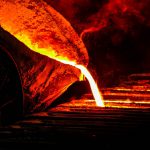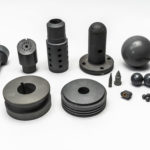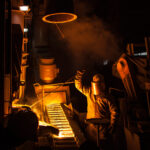Advanced ceramics are inorganic materials that possess specific, high-performance properties. Because of these properties, advanced ceramics play a vital role in many industries and high-temperature environments, such as electronics, metal production, power generation, and other industrial processing sectors. This blog post will analyse what makes advanced ceramics superior materials for high-temperature environments.
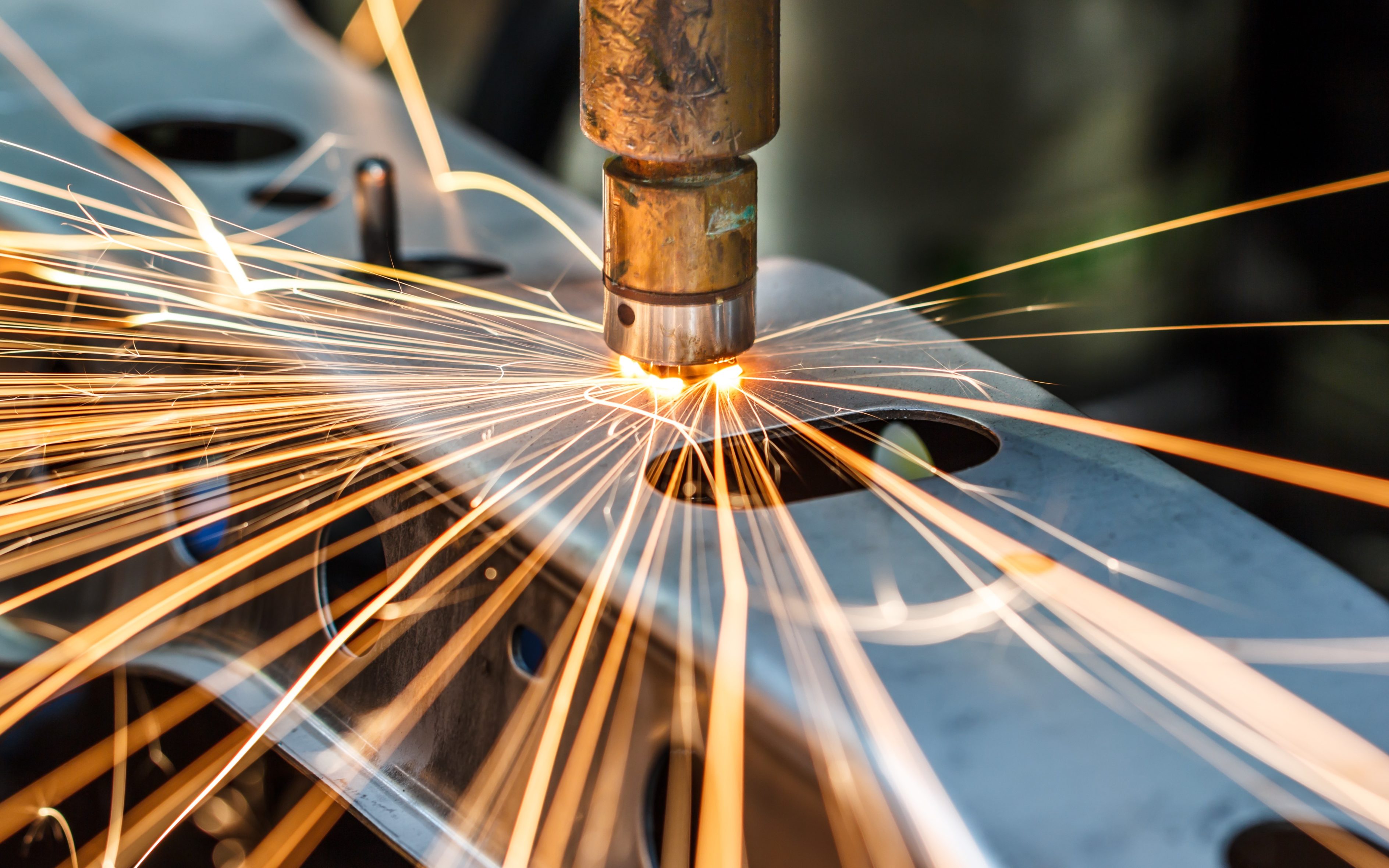
Resistance Weld Process – Image Credit: Shutterstock
Benefits of Advanced Ceramics in High-Temperature Applications
The properties of advanced ceramics are plentiful, but in high-temperature applications, their high toughness and strong resistance to corrosion and wear make them favourable materials. Industrial processes often involve aggressive chemicals, high temperatures, and exert pressure on components, leading to cracking and other damage. Advanced ceramics can withstand chemicals, and their high compressive strength helps them perform under pressure.
Advanced ceramics have numerous beneficial properties, including the following:
- High chemical resistance
- Outstanding corrosion resistance
- Excellent electrical properties
- High hardness
- Low density
- Exceptional thermal conductivity, insulation, and shock resistance
- Superior wear resistance
What Types of Advanced Ceramics are Available?
There are a number of families of advanced ceramics available, which themselves are produced through high-temperature processes. Conventional ceramic manufacturing routes usually include raw material or powder processing, green forming processes, sintering, and diamond grinding. Novel green forming methods such as additive manufacturing (AM) techniques are now well established, especially for oxide advanced ceramics.
The most common options for advanced ceramics are alumina, cubic boron nitride, silicon carbide, silicon nitride, and zirconia. These materials are often referred to as high-tech, high-performance, or technical because their outstanding properties enable usage in demanding and high-temperature environments.
Additionally, there is a sub-division of ceramics called ultra-high temperature ceramics (UHTCs), which are able to withstand temperatures of over 2,000oC and can be found as both bulk materials and coating solutions to provide thermal protection. UHTCs include borides, carbides, nitrides, and oxides of specific materials that can be used in extreme operating temperatures.
What Applications are Advanced Ceramics Used in?
Advanced ceramics are widely used for their outstanding properties, such as wear resistance and high tensile strength. They are becoming increasingly favoured in electronics, manufacturing, medicine, defence, and aerospace, and continue to support development in the engineering and technology industries.
It is essential to mention that ceramic materials are chosen for specific applications based on their properties, as some advanced ceramics have higher thermal stability or wear resistance than others. In contrast, others are selected for their electrical or mechanical properties. Some specific applications of advanced ceramics include the following:
Alumina
The benefits of alumina lie in its high-quality electrical and mechanical properties, such as high strength and wear resistance. It is often used with other materials and brazing or metallising techniques for spark plugs, pressure sensors, and X-ray tubes.
Silicon Nitride
Silicon nitride (Si3N4) or sialon (Si-Al-O-N) is often used in thermal processing applications because of its outstanding wear, chemical, thermal shock resistance. Typical uses of silicon nitride include bearings, ceramic plates, and welding and wire drawing or tube forming.
Zirconia
Zirconia offers outstanding mechanical strength and corrosion resistance and is often used in engineering applications. It can withstand chemical attacks, and its high hardness reduces the risk of fractures and wear. Typical applications include automotive engine components and sensors.
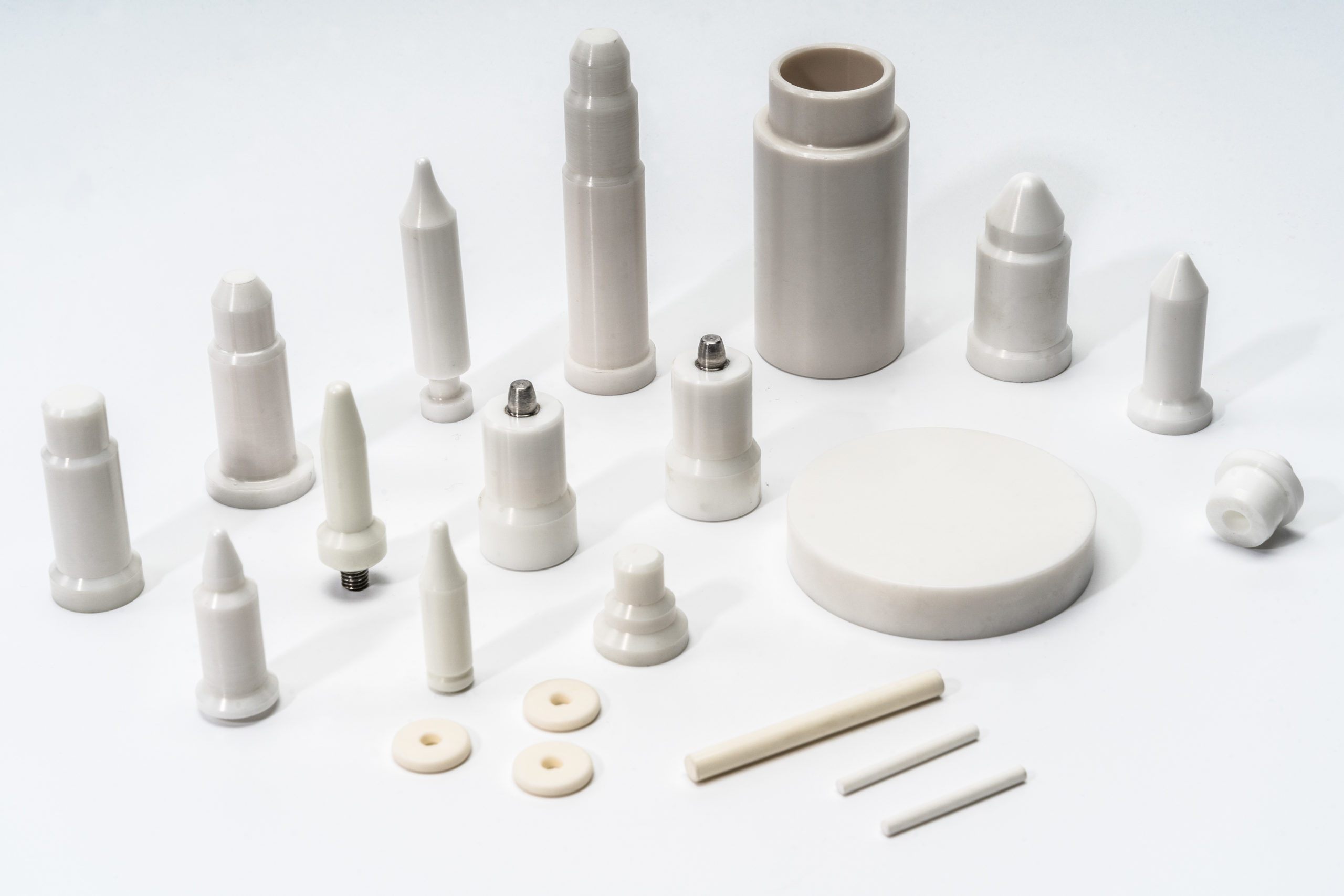
Zirconia pins. Image Credit: International Syalons (Newcastle) Ltd.
International Syalons and Advanced Ceramics
International Syalons has been developing advanced ceramics for nearly forty years and offer a range of solutions such as alumina, silicon nitride, and zirconia. As the leading manufacturers of sialon and silicon nitride-based products in the UK, our technical ceramics possess outstanding properties and enable them to be used in various industrial applications.
Contact us today for more information on how advanced ceramic products can enhance your industrial applications.

